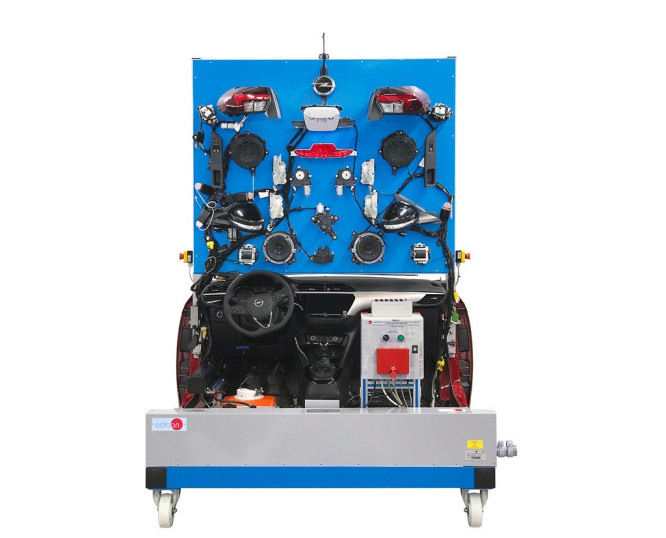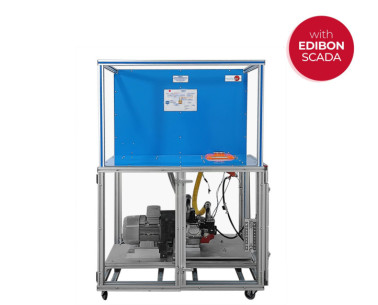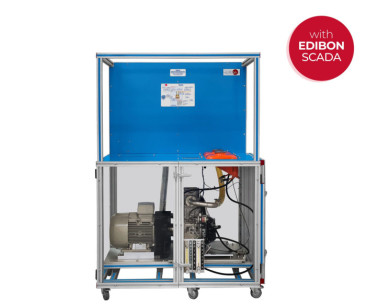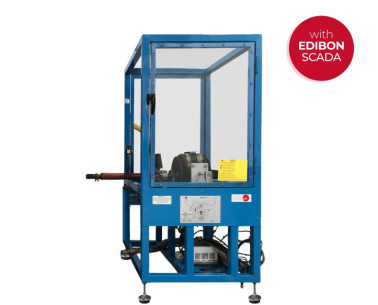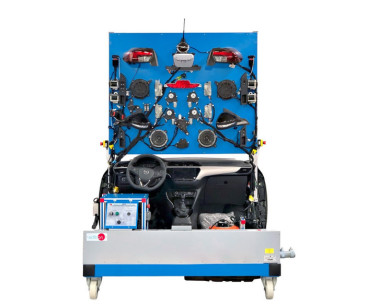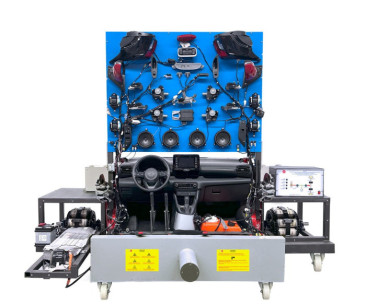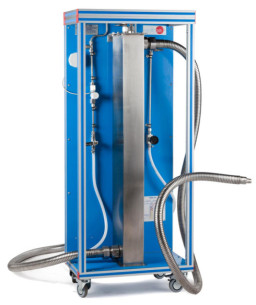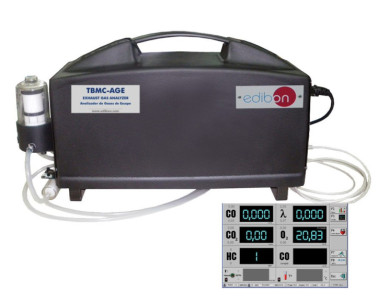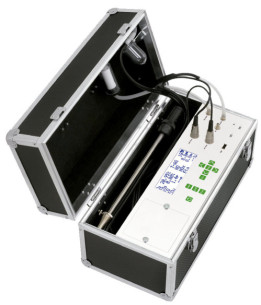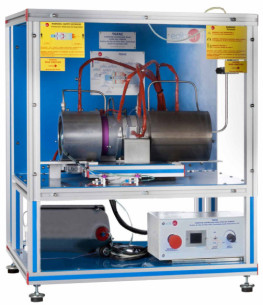The Comprehensive Gasoline Test and Diagnostic Bench for Combustion Engines with Fault Simulation, "TBM/G", is an advanced unit designed by EDIBON to conduct exhaustive tests and precise diagnostics on gasoline engines. Ideal for engineers and technicians, this unit allows for performance analysis, fault identification, and optimization of engine operation, ensuring efficiency and reliability in the maintenance and development of automotive systems.
The internal combustion engine is the central component of this test bench and its primary subject of study. Its function is to convert the chemical energy of fuel into mechanical energy through combustion in the cylinders. This unit enables the analysis of this conversion and the evaluation of combustion efficiency, exhaust emissions, and overall engine performance, key aspects for optimizing gasoline engines.
- The air intake system ensures that the engine receives the oxygen necessary for combustion, allowing for monitoring and analysis of air quantity and quality, vital factors for efficient combustion that directly impact power and fuel consumption.
- The exhaust system expels combustion by-products and reduces generated noise. The unit's exhaust system, designed to replicate that of a real vehicle, allows for the analysis of its behavior and operation. Additionally, it is possible to observe engine efficiency and analyze the composition of exhaust gases to assess regulatory compliance and environmental impact.
- The fuel supply system controls the exact amount of fuel injected into the cylinders, influencing combustion efficiency and engine performance. Through the diagnostic unit, various parameters of the fuel injection system can be evaluated. The bench allows adjustments and observations of how different fuel quantities affect the engine, optimizing consumption.
- The cooling system dissipates heat generated during combustion to prevent overheating and maintain the engine within a safe temperature range. This system can be monitored to evaluate its efficiency and impact on engine durability.
- The starting system includes an electric motor that initiates the first combustion, allowing the study of the startup process. This facilitates the analysis of engine behavior under cold start conditions, crucial for assessing reliability in different environments.
The Comprehensive Gasoline Test and Diagnostic Bench for Combustion Engines with Fault Simulation, "TBM/G", includes a fault generation module that allows for the simulation and study of the main problems that can occur in a gasoline engine, both in actuators and sensors. This enables students to identify and diagnose common faults, improving diagnostic and repair skills in a controlled environment. Additionally, Bluetooth connectivity is available for classroom monitoring and student assessment during practice sessions.
The unit's instrumentation includes various sensors that provide real-time data on critical engine variables such as pressure, temperature, speed, and fuel and air quantities. This data is essential for a thorough analysis of engine performance and allows for precise adjustments to optimize its operation.
Additionally, the unit includes an electronic terminal block that provides access to the main signals of the ignition and injection systems, facilitating a detailed analysis of their operation and behavior under different operating conditions.
This unit not only allows for the individual study of each engine system but also offers the ability to conduct comprehensive tests that simulate real operating conditions. These tests are essential for evaluating engine behavior under different scenarios, such as overloads and extreme temperatures.
Precise diagnostics are key to the proper functioning of a vehicle. Thanks to the Comprehensive Gasoline Test and Diagnostic Bench for Combustion Engines with Fault Simulation, "TBM/G", critical faults or inefficiencies for preventive maintenance can be identified. This allows intervention before serious breakdowns occur and facilitates real-time adjustments and repairs, improving engine reliability. With the diagnostic unit, it is possible to evaluate engine behavior in various situations and correct errors throughout its lifespan.
 Cookie preferences
Cookie preferences

